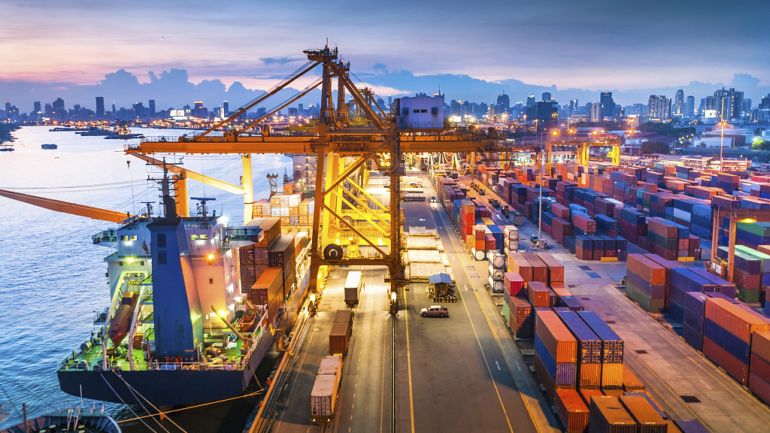Blog Detail
Digital Trade Finance Is The Key Necessity For Global Traders To Survive In A Post-pandemic Economy

The sudden outbreak of the global pandemic of Covid-19 had its adverse effects across the world. But as the world economies are recovering, & reestablishing their pre-pandemic position in the market, various industries are witnessing themselves wrapped in a digitally transformed trade landscape.
The Covid-19 economic crisis taught importers & exporters the importance of adopting resiliency, vigorous IT infrastructure, and digitization to survive in the market. Especially for the trade finance industry that holds a vital role in the global economic recovery.
Affected by the Covid-19 disruptions, several large organizations are expecting their banks to provide digital trade finance solutions to make their supply chain more resilient to pandemic-like situations. Moreover, many countries around the world, including the G7 are shifting towards a completely digital trade finance system. Undoubtedly, it is speeding up the transformation of the trade finance industry - one of the banking industries with reliance on paper-based processes.
Challenges and Opportunities in Trade Finance
One of the biggest challenges for trade finance is none other than reliance on paper-based procedures. The trade finance industry has always been highly dependent on legally accepted paper documents after going through submission, verification, and re-submissions as a required procedure. This traditional system of trade finance lacks transparency, accessibility, and interoperability between the global parties ranging from importers & exporters to banks, shipping & insurance companies to government agencies.
As a result, the risk of fraud and breach of trust fueled by Covid-19 can ultimately turn the table while assuring payment & performance in a trade deal. To mitigate these risks and to increase the visibility & safety of trade finance processes, many banks & trade finance service providers are looking for ways to lower their risks. Businesses are becoming more resilient to be capable of responding to the varying scenario due to the Covid-19 disruptions.
At the same time, various emerging technologies like Blockchain are enabling trade finance providers to work more effectively and strengthening their relations with other departments in the bank. Within a couple of months from the onset of the Covid-19 emergency, global clients & corporates are capable of keeping their financial operations active despite a need of being physically present in the office premises only because of digital trade finance.
The transformation of the trade finance industry is resulting in streamlined, regulated, managed & optimized trade & transaction processes, and quicker information flow. Also, it is decreasing stress for global traders in obtaining various trade finance services much quicker to cater to their financial needs with minimized risk factors and cut back processing time.
Changed Priorities For Global Traders
Despite the negative effects of coronavirus, the global pandemic has something positive also. It made importers & exporters realize that trade businesses are in need to go digital to survive in the post-pandemic economy. The scarcity of financial resources calls for streamlining processes and decreasing costs, not only for trade but also for trade finance providers. This highlights the importance of digital global trade finance for organizations to survive.
For this, worldwide companies are required to reevaluate their global supply chain risks first. The complexity of the vast supply chain due to the pandemic compels international trade-related businesses and corporations to monitor and find ways to balance costs, efficiency, speed, and operational resilience along with supply chain diversification.
Digitized Trade Finance
Believe it or not, the global pandemic has a significant contribution to transforming the trade finance industry. Various global trade-related businesses, as well as banks & financial institutions, are on their way to invest in digitization, with technologies like optical character recognition (OCR), artificial intelligence, NFTs or Non-Fungible Tokens and blockchain, etc. The worldwide lockdown has its big hand in adopting digital transformation: transactions that were always executed in-person are now being done online. There is no doubt that digital trade finance is likely to take place in the global supply chain and requires banks to facilitate more digitized solutions to their customers.







